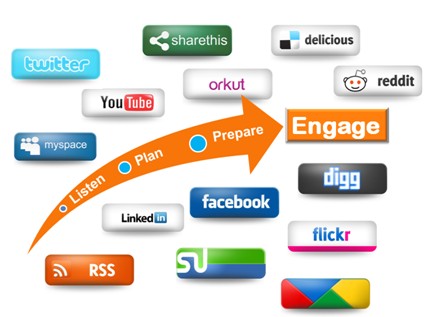考研阅读精选:限制师生社交媒体交流 民众反应褒贬不一
来源:新东方在线
发布时间:2016-09-23
『近年来,随着社交媒体的风行,传统观念中被禁锢在教室中的师生关系正逐渐被颠覆,为了防范社交网络的潜在威胁,一些学区甚至开始禁止师生间通过社交媒体的交流。』
Student-Teacher Social Media Restrictions Get Mixed Reactions
限制师生社交媒体交流 民众反应褒贬不一
August 10th 2011∣from US News & World Report

The traditional student-teacher relationship of the past used to begin and end at the classroom doors, with conversations that consisted of topics such as arithmetic, grammar, or history and rarely delved into the personal background of a student or teacher. Today, with the proliferation of social media, teachers and students have greater access to one"s personal history than ever before.
With a "follow" or "friend confirmation," two people can have access to one another's personal lives—from photos to status updates that give deeper insight to an individual's previously private thoughts and actions.
While social media adopters in education argue that connections between students and teachers on networks such as Facebook and Twitter are harmless, Carole Lieberman, a psychiatrist in Beverly Hills, Calif., believes any one-on-one private relationship out of the classroom begs for inappropriate behavior to begin. "It's almost like being at a bar. It's a place that's conducive to socializing and not something that is related to school."
Beyond the threat of inappropriate relationships, some experts believe developing these connections on social media will tarnish a teacher's authority in the classroom. Iris Fanning, a family-counseling provider with more than 20 years of experience for school districts in Albuquerque, N.M., says major concerns arise when students begin to see teachers as peers.
"When I entered education, there was a clear wall of boundaries between students and teachers," Fanning says. "You still have to have those boundaries, and I think we've gotten away from that ethically in teacher education. We, as educators, are supposed to be mentors and teachers—not friends."
In response to some of the potential threats of social media, some school districts are now taking steps to limit extracurricular dialogue between a student and teacher. In Toledo, Ohio, for example, several school districts have advised teachers to only communicate with students through social media when a topic applies to school-related matters.
Sami Brown, a rising high school senior in Minster, Ohio, says that she has mixed feelings about restricting the actions of teachers on social media. "I think teachers should be allowed to add us on Facebook and Twitter because, nowadays, that's how we communicate," says Brown, who hasn't friended any of her teachers on Facebook and rarely uses Twitter. "But I also think that some teachers and coaches would cross the line. I do agree that it should be monitored but they shouldn't be cut off completely."
Most recently, in Missouri, the state passed Senate Bill 54, which bans students and teachers from having any contact on social media networks, regardless of the nature of the conversation. The bill was created as a proactive measure to protect children from entering into inappropriate relationships with teachers. As a result, students with questions related to work assignments will be unable to contact their teacher via Facebook or Twitter—among other networks—to get assistance once the new bill goes into effect Aug. 28.
Dave Childers, principal at ACEL Fresno Charter High School in California, says it's disheartening to see legislation that restricts the ability for teachers to connect with students through social media.
"I definitely think social media is one of the most powerful tools that we have at our disposal as educators," Childers says. "It's always sobering to see giant steps backward where we once again confuse one tool for problems that are actually bigger societal problems."
According to Childers, teachers' actions on social media should be judged on a case-by-case basis, since the majority of educators in Missouri are facing consequences because of the potential for misconduct. Childers says that virtually anything—within and outside the realm of social tools—could be a gateway for inappropriate relationships between a student and teacher. "We could go as far as saying teachers shouldn't be allowed to coach sports or advise a club, because when you do that you have extra contact and stronger relationships," he notes.
热门推荐:
课程 文章 问答 资讯 评论 百科
- 比较正规的考研培训机构12-04
- 研究生考试辅导培训课程哪家好12-04
- 考研网络课程哪个比较好12-04
- 考研专业课培训哪个机构好12-02
- 哪个培训班的考研比较好11-29
- 比较靠谱的考研辅导班11-29
- 考研英语一阅读教学视频06-14
- 烟台考研英语辅导06-14
- 考研网课补习班哪个好03-04
- 考研培训班哪家网校好03-04
- 考研辅导视频教程哪个好03-04
- 考研培训机构哪一家好03-04
- 考研培训班哪个机构的好12-04
- 考研网课机构哪个比较好12-04
- 考研专业课辅导班班哪个好12-04
- 网上哪个考研培训班靠谱12-04
- 哪个考研培训机构比较靠谱12-02
- 考研政治课程哪个网课比较好12-02
- 西综考研哪个老师讲得好03-31
- 管综考研哪个老师好03-17
- 护理考研哪个老师讲得好03-16
- 考研政治网课哪个老师好03-16
- 考研数学网课哪个老师讲得好03-15
- 考研英语网课哪个老师好03-14

